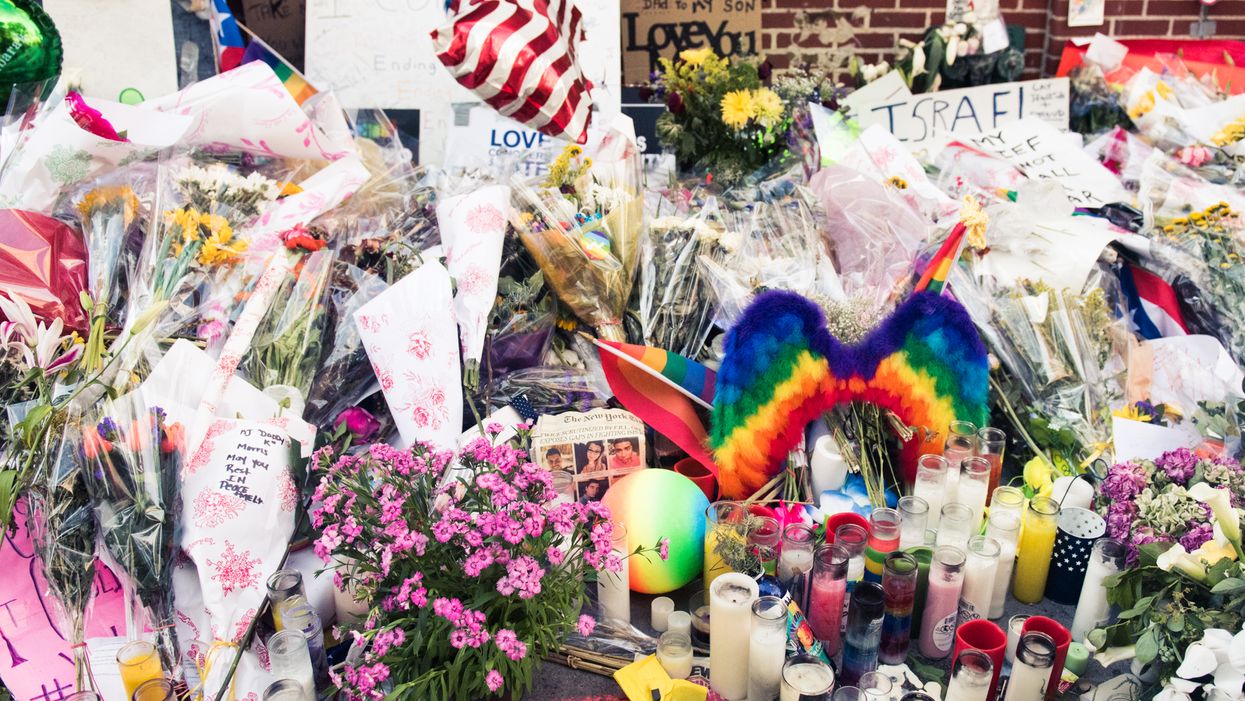Google Gave $1 Million to Memorialize the Stonewall Riots
Why the Stonewall Inn riots still matter nearly 50 years later.

This June, tons of mainstream companies and corporations have publically celebrated what was declared by President Obama in 2009 to be Pride Month.
From mainstream stores like Target and Macy’s to the tech staple Instagram and major airlines like American, there’s been a big push to publically speak out in support and honor of LGBTQ Americans. But perhaps the company that’s made the biggest statement so far is Google.
On June 18, a week before the 48th anniversary of the 1969 Stonewall Riots in New York City, Google’s nonprofit division, Google.org, announced it would give a $1 million donation to the Lesbian, Gay, Bisexual & Transgender Community Center of New York for the purpose of preserving and digitizing the historical impact of what some consider the epicenter of LGBTQ rights.
A Brief History Lesson
Often referred to as the Stonewall Uprising, the conflict between New York City’s LGBTQ community and the NYPD was nothing short of historic. It began at about 1:30 AM on June 27, 1969, when cops raided the Stonewall Inn, a famous gay bar on Christopher Street, for operating without a state liquor license. (At the time, the state refused to grant liquor licenses to bars that served gays, forcing them to operate illegally. Homosexuality was illegal in 49 U.S. states in 1969.)
Thirteen arrests were made that night, and many versions of the story indicate the riots began when a lesbian woman, who was shoved into a paddy wagon by a police officer, cried out to bystanders, “Why don’t you guys do something?”
Patrons and others who had started to gather began shouting and throwing beer cans and coins at the police. When the crowd swelled to over 500, a handful of cops barricaded themselves—along with some of their detainees—inside the bar. Soon, garbage cans, garbage, bottles, rocks, and bricks were being hurled at the building. Windows were broken. A cheering crowd broke out into kick lines and song. The police on the streets fought back with batons and more arrests were made until, eventually, the crowd lit the Stonewall Inn on fire. The demonstration roared until 4 AM. The following day, thousands took to the streets chanting “gay power” and demanding equal rights. Another night of protesting raged on until the early morning hours.
In the immediate aftermath of the Stonewall riots, gay, lesbian and transgendered groups began organizing for more rights. Still, it wasn’t until 2003 that the U.S. Supreme Court deemed state laws banning homosexuality were unconstitutional.
Those Who Don’t Remember…
It’s because of the slow progress of liberation for the gay and lesbian community that William Floyd, Google’s head of external affairs for New York, created the idea to fund Stonewall, according to The New York Times. Floyd lives with his husband in Chelsea and walks past the Stonewall Inn when taking his young son to school.
“This is a living, breathing, active thing,” Floyd told the Times. “It’s not like Mount Rushmore or a physical, natural thing of beauty, it’s civil rights.” The Google.org pledge, which was written by Floyd, states:
Google was founded on the idea that bringing more information to more people improves lives on a vast scale. The preservation of history is an essential way to make sure information lives on and reaches everyone.
Ahead of 2019, which will mark the 50th anniversary of the uprising, the Center will record the stories of those who raised their voices at Stonewall and the many others who were inspired by their brave defiance.
In other words, those who don’t remember history are doomed to repeat it. In solidarity with the mission, New York senator Chuck Schumer announced the grant. “The purpose is to spread the word about the Stonewall Uprising and the progress we have made as well as the distance we have to go,” he stated to the Times. Calling the events at Stonewall “deeply patriotic,” Schumer said this influx of money and support to the project “sends a great message to Washington, especially in these times: We celebrate our diversity and cherish it, we don’t shrink from it and we don’t fear it.”
Some of the deep urgency to act now comes from the fact that those who were present during Stonewall are becoming older and fewer. And, as it stands, there is very little photographic coverage of the riots. Because the press didn’t regularly cover gay issues, only seven still photographs of the riot even exist. Included in those who were witness to the uprising nearly 50 years ago is Martin Boyce, 69. “The only place we had to go was Christopher Street,” he recalled to the Times. “Christopher Street was the one place you didn’t have to look behind you, it was all your people. Here was the one spot we had—now raided and ruined.”
Last year, to commemorate the uprising (as well as recognizing its role as a sanctuary for NYC’s gay community), the Stonewall Inn was named a national historic monument.
“Remembering the people who spoke out against injustice, who fought for the basic right to ‘be,’ is key to our universal quest for human rights,” wrote Floyd. “We hope that sharing these stories will help to empower and inspire us all to action.”